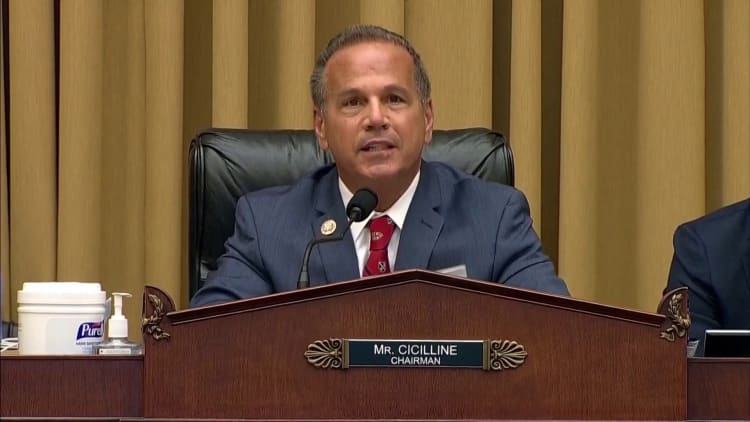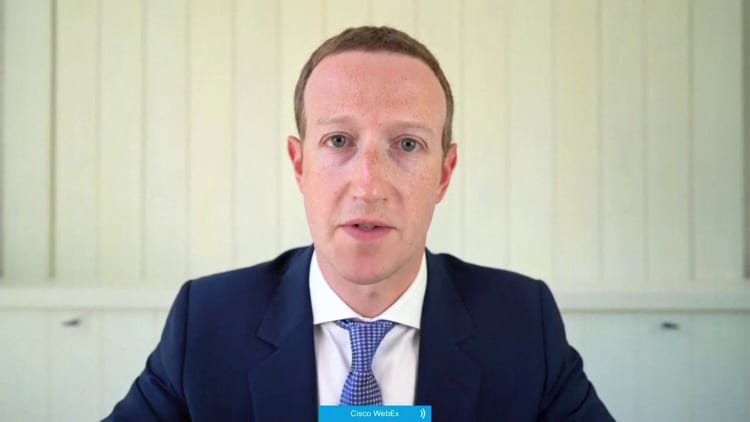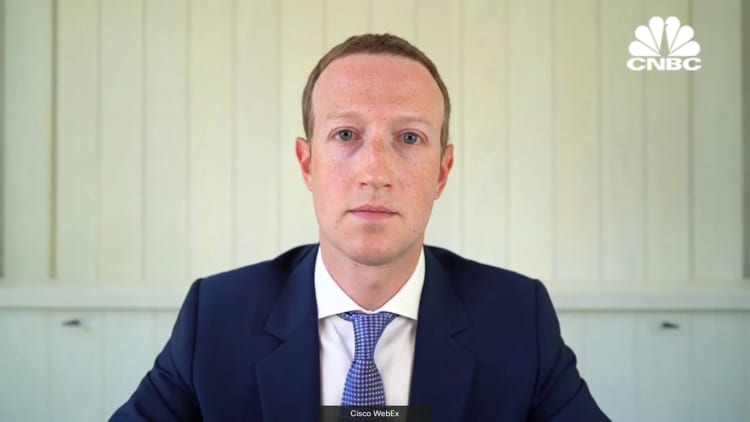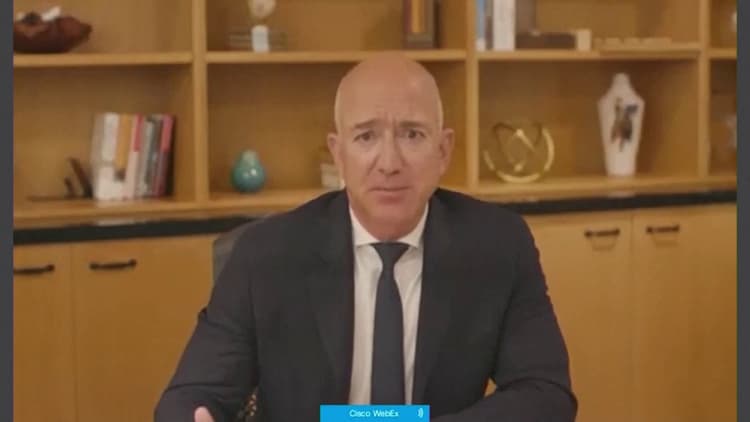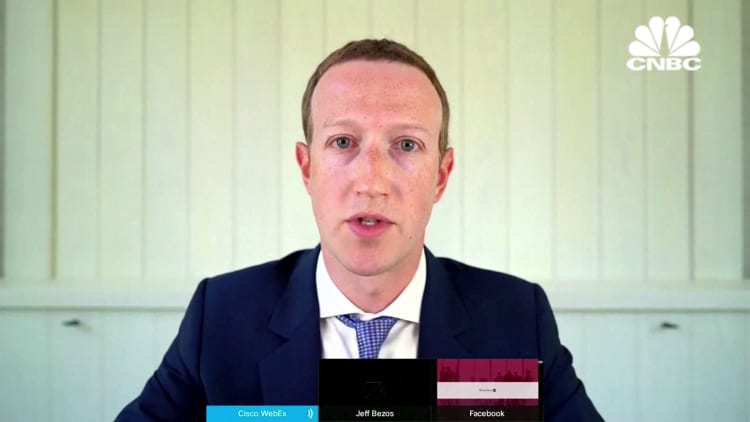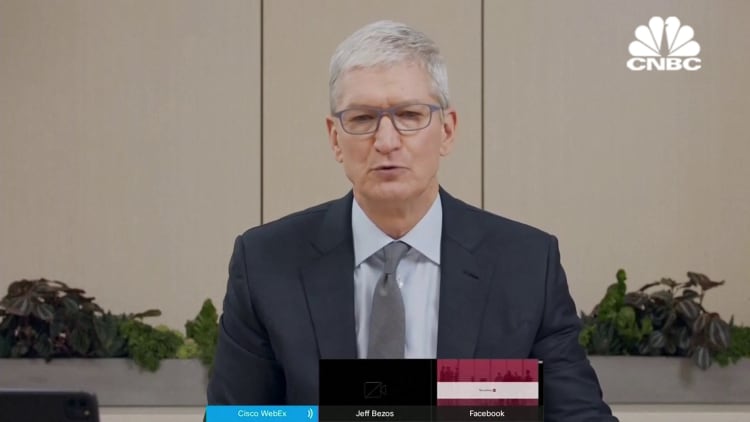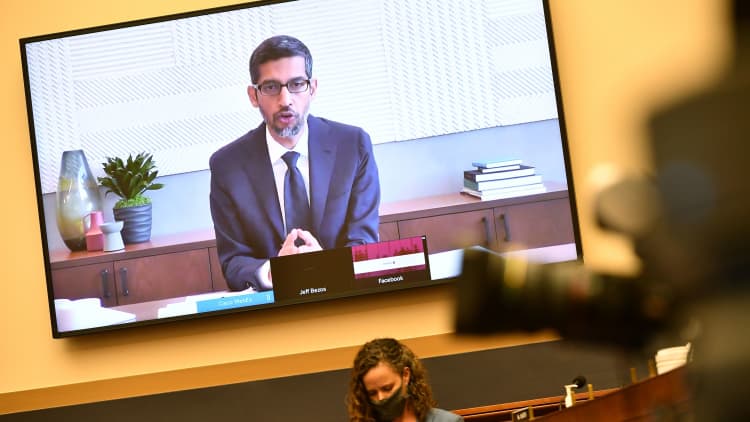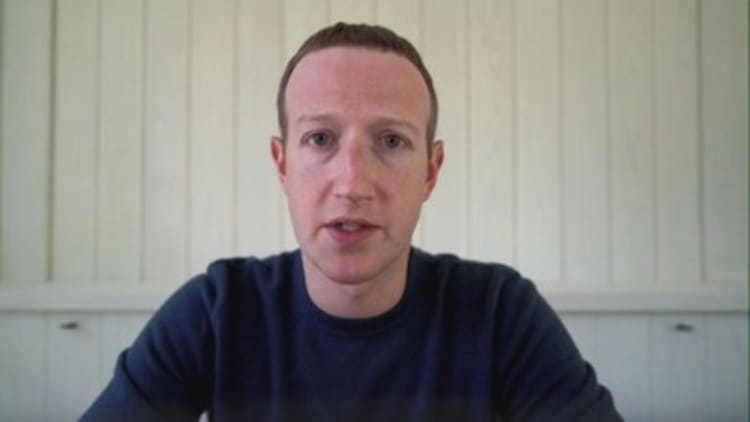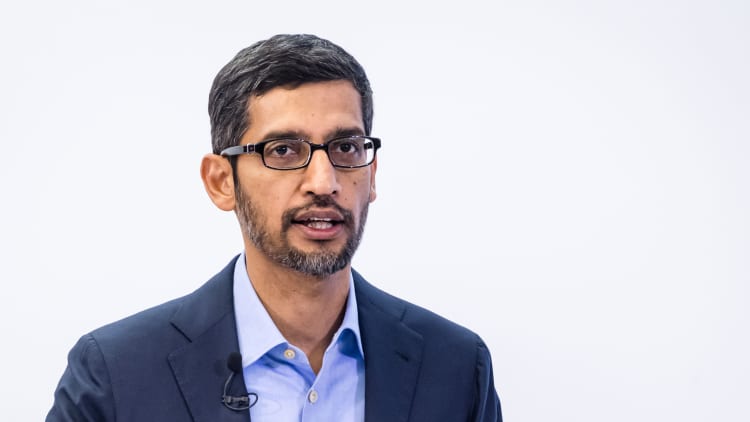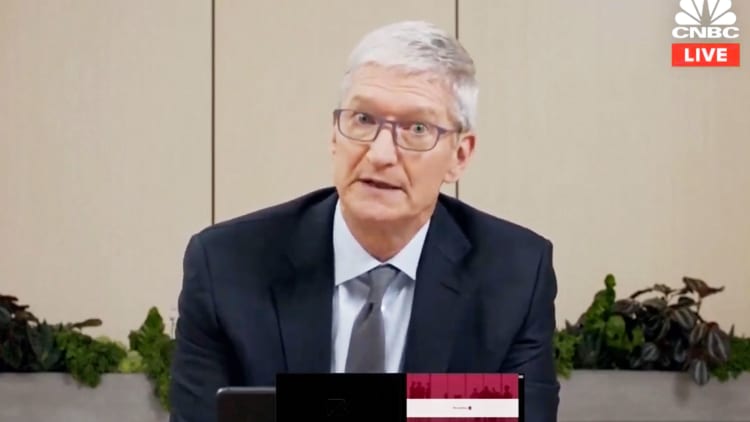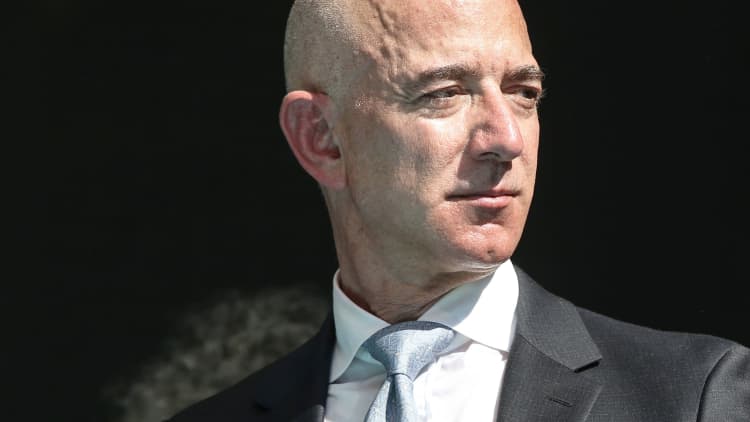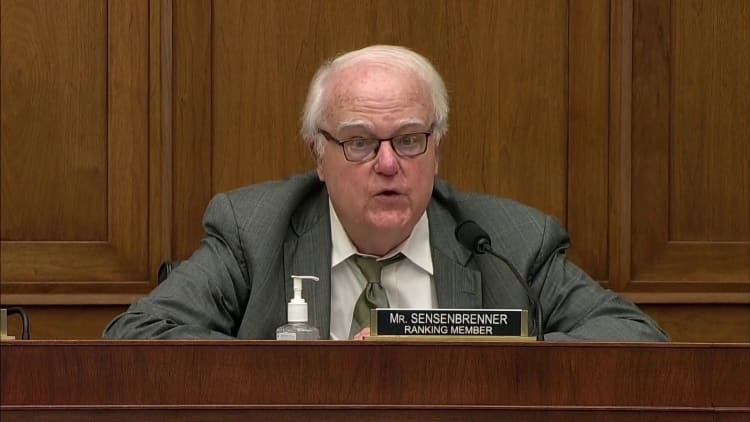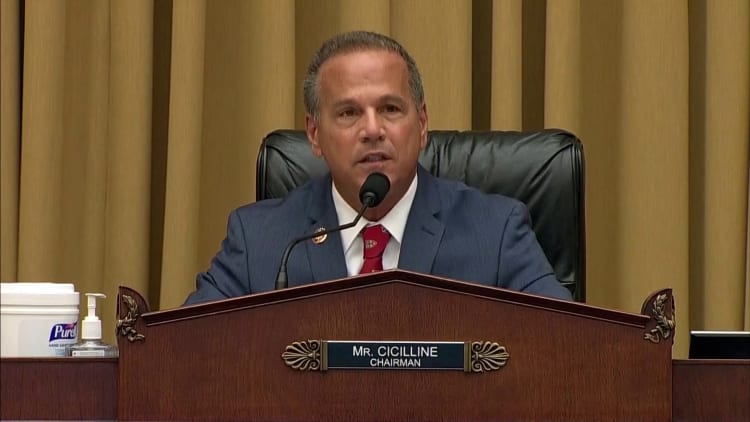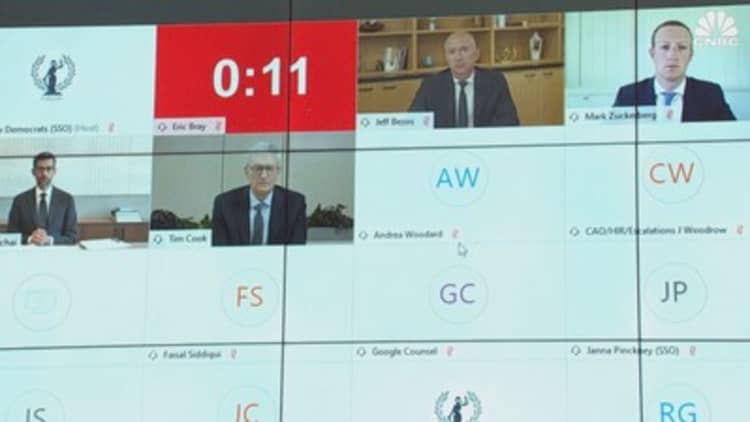
For more than five hours, members of the House Antitrust Subcommittee grilled the CEOs of Alphabet, Amazon, Apple and Facebook — four of the country's five most valuable companies, with only Microsoft missing — on a wide range of matters. The CEOs dialed in through video conference while most of the committee members were present in Congress, where Chairman David Cicilline, D-R.I., repeatedly reminded them to wear masks to prevent the spread of Covid-19.
For a full recap, check out CNBC's live blog of the event below.
And check out some highlights from the hearing at the following links:
- Instagram founder feared Zuckerberg would go into 'destroy mode' if he didn't sell to Facebook, Jayapal says, citing documents
- Bezos says third-party seller's dramatic complaint about Amazon is not systemic
- Cook pressed on whether App Store treats all developers equally
- Google CEO Sundar Pichai questioned on JEDI, work with China
While the topic was ostensibly antitrust and anti-competitive behavior, several Republican members of the committee attacked Facebook, especially, for allegedly suppressing conservative voices, despite the fact that — as Rep Jamie Raskin, D.-Md., pointed out — the most popular posts on the site consistently come from right-leaning outfits such as Ben Shapiro, Franklin Graham, and Breitbart.
Other members of the subcommittee seemed unprepared with details, with notable exceptions like Rep. Pramila Jayapal, D-Wash., who pressed Facebook's Mark Zuckerberg on whether he'd ever threatened to clone a company who he was trying to acquire, and Amazon's Jeff Bezos on how the company uses data from third-party sellers to inform its own product creation.
Overall, Alphabet's Sundar Pichai received the most scrutiny, while Apple's Tim Cook received the least. — Matt Rosoff
A video of the full hearing is available below:
(No player above? Click here to fire up the Youtube stream and watch.)


